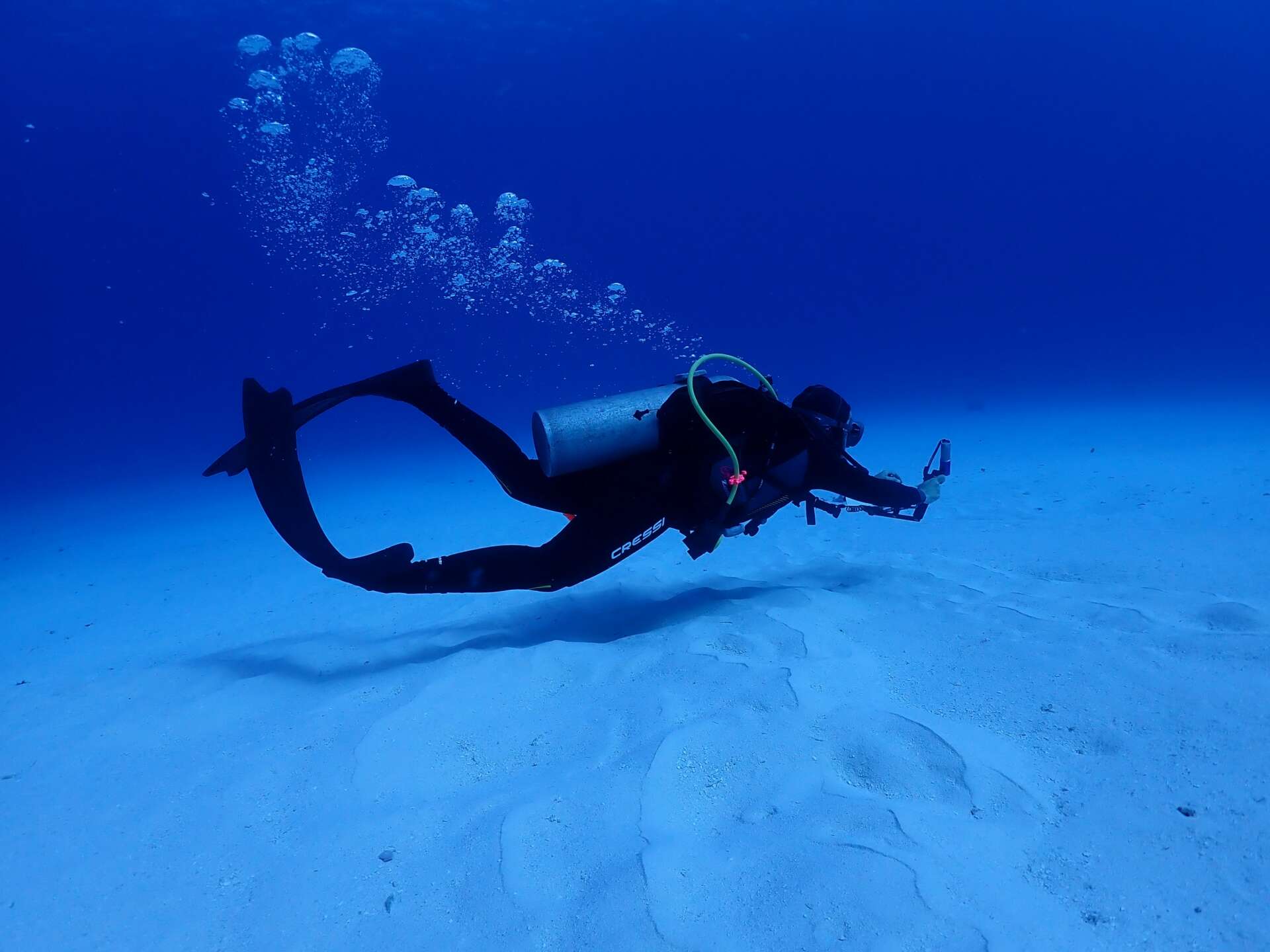Alright – so today we’ve got the honor of introducing you to Nadia Rubio. We think you’ll enjoy our conversation, we’ve shared it below.
Nadia, looking forward to hearing all of your stories today. How did you come up with the idea for your business?
My nonprofit enables me to delve into the study of coastal exploitation while sharing my scientific discoveries with a broader audience. Striving for financial independence to pursue my own projects, I’ve been raising funds through research grants and awards—an endeavor I’ve been passionate about since my youth. Now, I navigate a freelance world, where I’m solely accountable for project outcomes. This transition has been a whole new chapter for me, marked by learning the ropes of expressing and selling ideas on social media.
In tandem with this shift, I’ve embraced extensive scuba diving, capturing valuable insights into underwater landscapes. These immersive videos have become a cornerstone of my brand, gaining recognition in international news and documentaries. Launching a Marine Conservation nonprofit brought its share of challenges, but I embrace them as opportunities to learn and grow. Beyond my scientific field, I’ve dived into acquiring new skills, fostering a love for continuous learning.
Leading a nonprofit keeps me pleasantly occupied, and what I cherish most is the chance to give back to coastal communities. Spending quality time with them is a uniquely gratifying aspect of my role—one that adds a special dimension to the journey of nonprofit leadership.
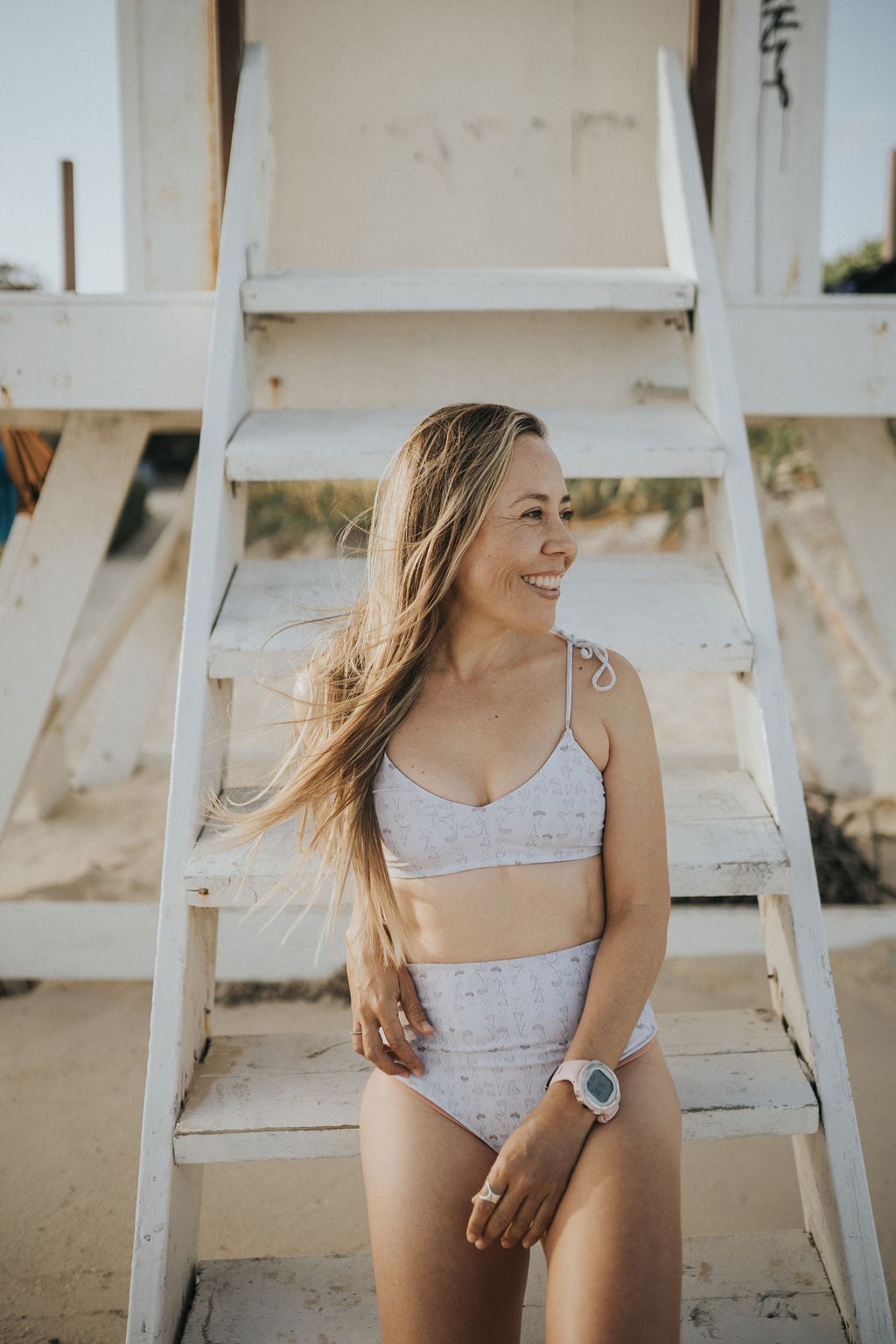
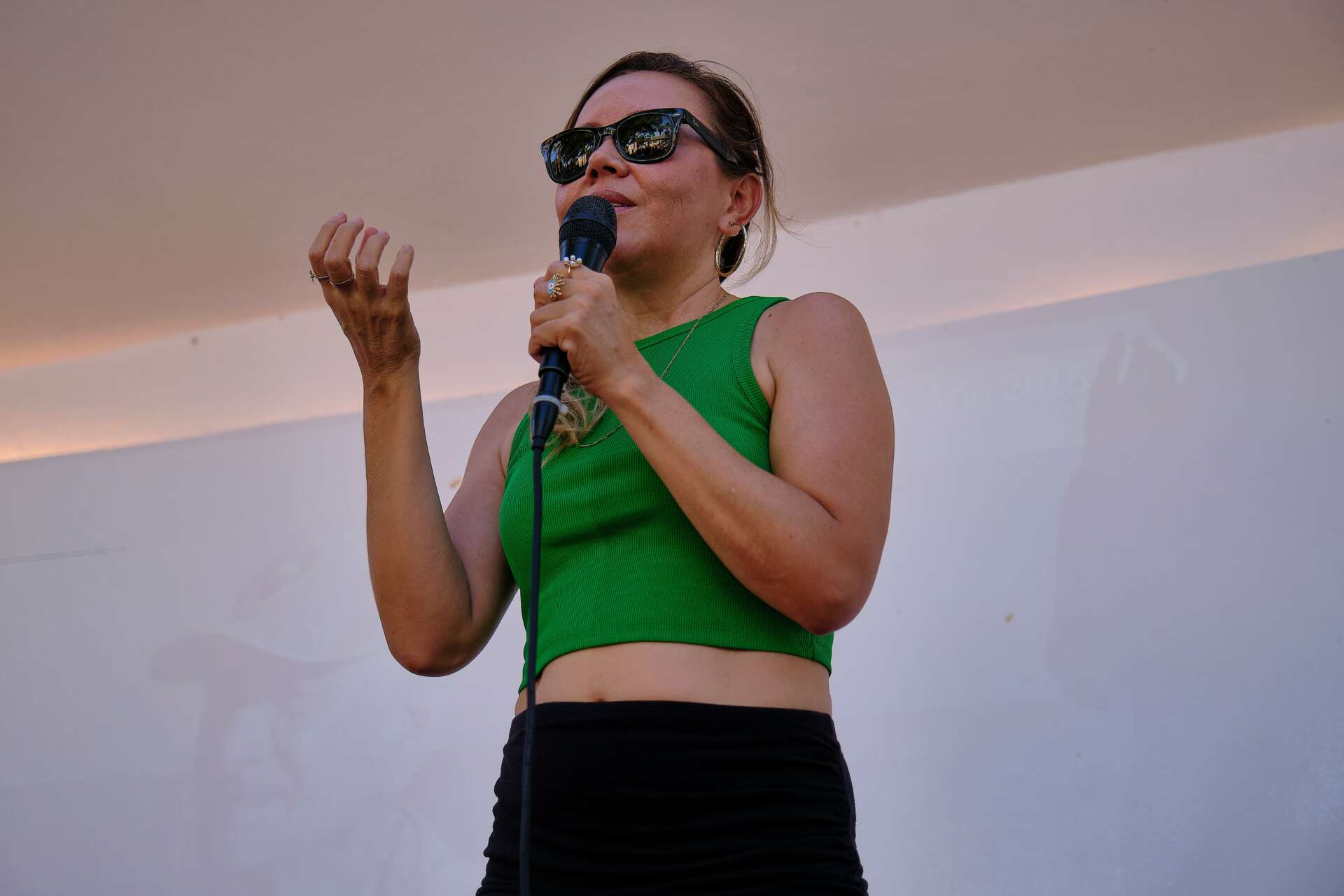
Nadia, love having you share your insights with us. Before we ask you more questions, maybe you can take a moment to introduce yourself to our readers who might have missed our earlier conversations?
My fascination with the ocean began at a tender age, sparked by my mom’s deep love for the sea. National Geographic magazines, generously gifted by my grandfather at the age of 7, opened a world of wonder about dolphins and whales that captivated me. This early passion fueled my commitment to become a marine biologist, shaping my academic journey from bachelor’s to master’s degrees, delving into diverse facets of whale ecology. The Gulf of California became my classroom, where I devoted significant time studying sperm whales during my early career.
The turning point arrived with my Ph.D. as I delved into the complex interaction between humans and the environment. Immersing myself in fishing communities, particularly on Holbox, Isla Mujeres, and Cozumel in the Mexican Caribbean, I documented traditional sea knowledge, broadening my perspective.
While my foundation in science remained solid, 2019 marked a transformative year as I took a diving year, generously supported by the Women Divers Hall of Fame award. This experience not only enabled me to attain my Divemaster but also sparked a science communication campaign. Returning to the underwater world rekindled my joy and collaborating with Healthy Reefs for Healthy People led to successful science education campaigns, spotlighting the Mesoamerican Barrier Reef.
This joyous experience reshaped my trajectory, inspiring me to establish my nonprofit. Now passionately immersed in a project that you can discover online, I’ve transitioned into creating short films addressing coastal exploitation in Mexico’s Caribbean Islands. I also continue exploring my scientific research line studying the relationships through time between humans and sharks on islands with research grants by Russell E. Train Education for Nature, WWF; Save Our Seas Foundation and The Rufford Foundation. Through the nonprofit, I’ve embraced the realm of science research and education, developing materials like a children’s book and a shark lottery game to impart knowledge about sharks in the Yucatán Peninsula.
My involvement extends beyond the scientific realm, fostering direct connections with local communities. Science communication events bring diverse audiences together, creating awareness about the ocean and its threats. Our latest project on Cozumel Island focuses on the historical relationships between humans and sharks, representing the first systematic study of its kind. As the influx of visitors threatens Mexico’s Caribbean Islands, understanding changes in biodiversity becomes paramount.
In the face of these challenges, our nonprofit research group stands at the forefront, generating crucial science and education to combat issues like coastal exploitation and biodiversity loss of megafauna. The call to protect our oceans extends to everyone, regardless of proximity. Support for our initiative is not just welcomed; it’s pivotal in safeguarding our natural treasures.
Navigating an international career as a minority in science has presented its share of challenges, yet it’s a journey from which I’ve gleaned invaluable lessons. To young minds and those considering a career change, my advice is simple—stay positive, work diligently, and invest in your emotional and intellectual growth. Persevere through tough times, for every challenge is an opportunity to learn and grow.

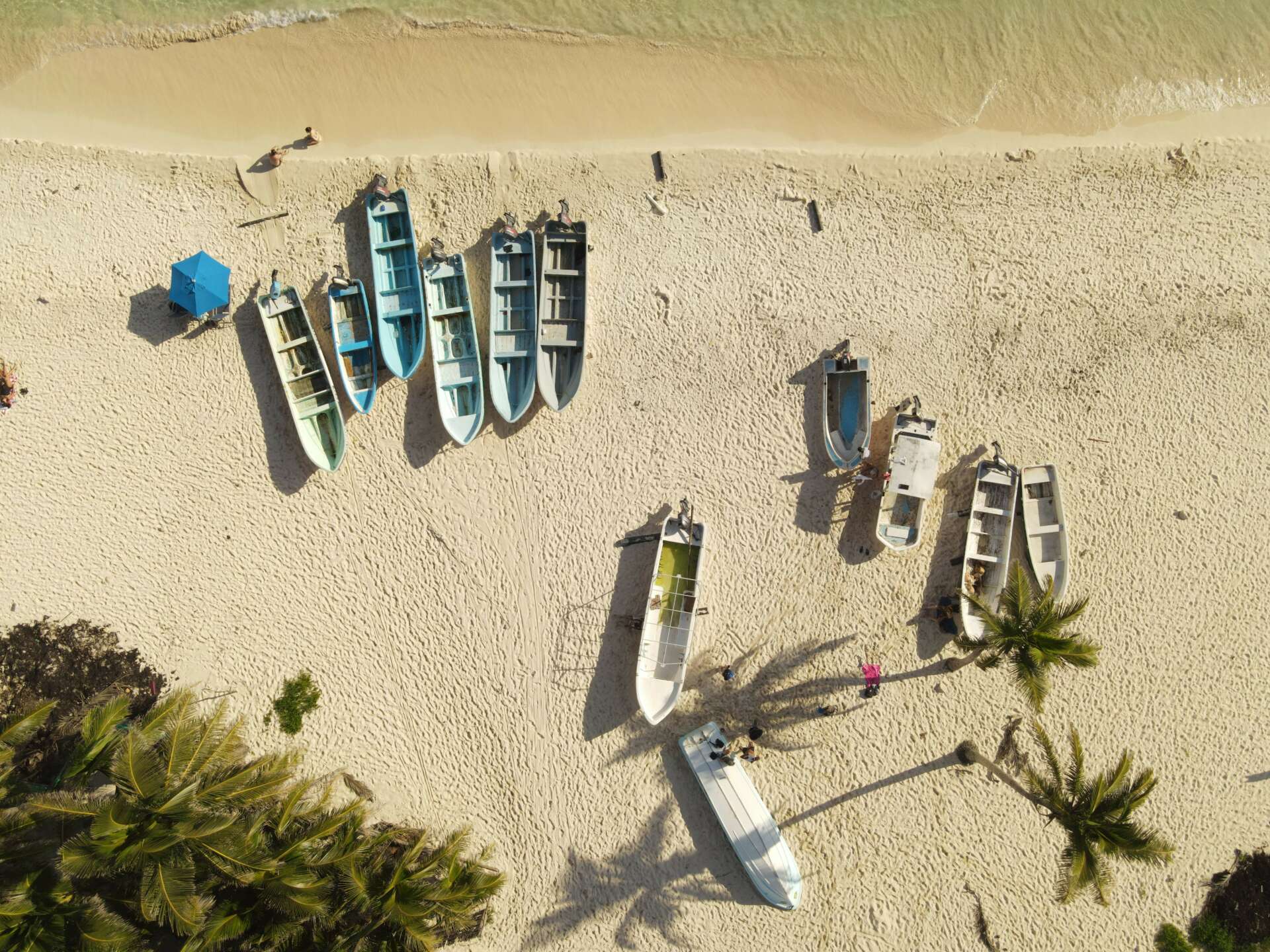
Let’s talk about resilience next – do you have a story you can share with us?
From a young age, my fascination with the ocean led me to pursue a degree in Marine Biology in Mexico and later earn a graduate degree at the renowned Scripps Institution of Oceanography at UCSD. Immersed in the academic world for a considerable part of my life, I dedicated myself to marine conservation projects with a binational focus, striving to protect species and habitats.
While my passion for science remained strong, a desire to explore new avenues prompted me to shift my focus to island conservation and scuba diving after completing my Ph.D. in the United States. Returning to Mexico, my home country, after an extended period abroad presented unexpected personal challenges. Despite having achieved success in prestigious academic institutions and embracing my independence, I encountered resistance to these qualities in my cultural context.
This period marked the beginning of a profound self-discovery journey as I set out to rebuild my life in Mexico and establish myself as an independent scientist. Recognizing limited opportunities, I resolved to reinvent myself, becoming my own advocate by securing grants and donors to support both my individual research and the research group I was assembling. This transformative process began in 2015 and culminated in the establishment of a small nonprofit organization called Mar Sustentable.
Over the course of five years, I successfully consolidated my research initiative within Mar Sustentable, leveraging grants from Switzerland, the United Kingdom, and the United States. These funds empowered me to conduct groundbreaking interdisciplinary research, focusing on the study of coastal exploitation on Mexico’s Caribbean Islands. Recent projects include an exploration of the historical presence of megafauna, such as sharks and rays, particularly sawfishes, on these islands.
The solid and professional foundation of my nonprofit is a testament to my international background and extensive connections within the nonprofit sector. The journey was undoubtedly challenging, but the breathtaking landscapes both above and below the water made it a truly beautiful and rewarding experience.
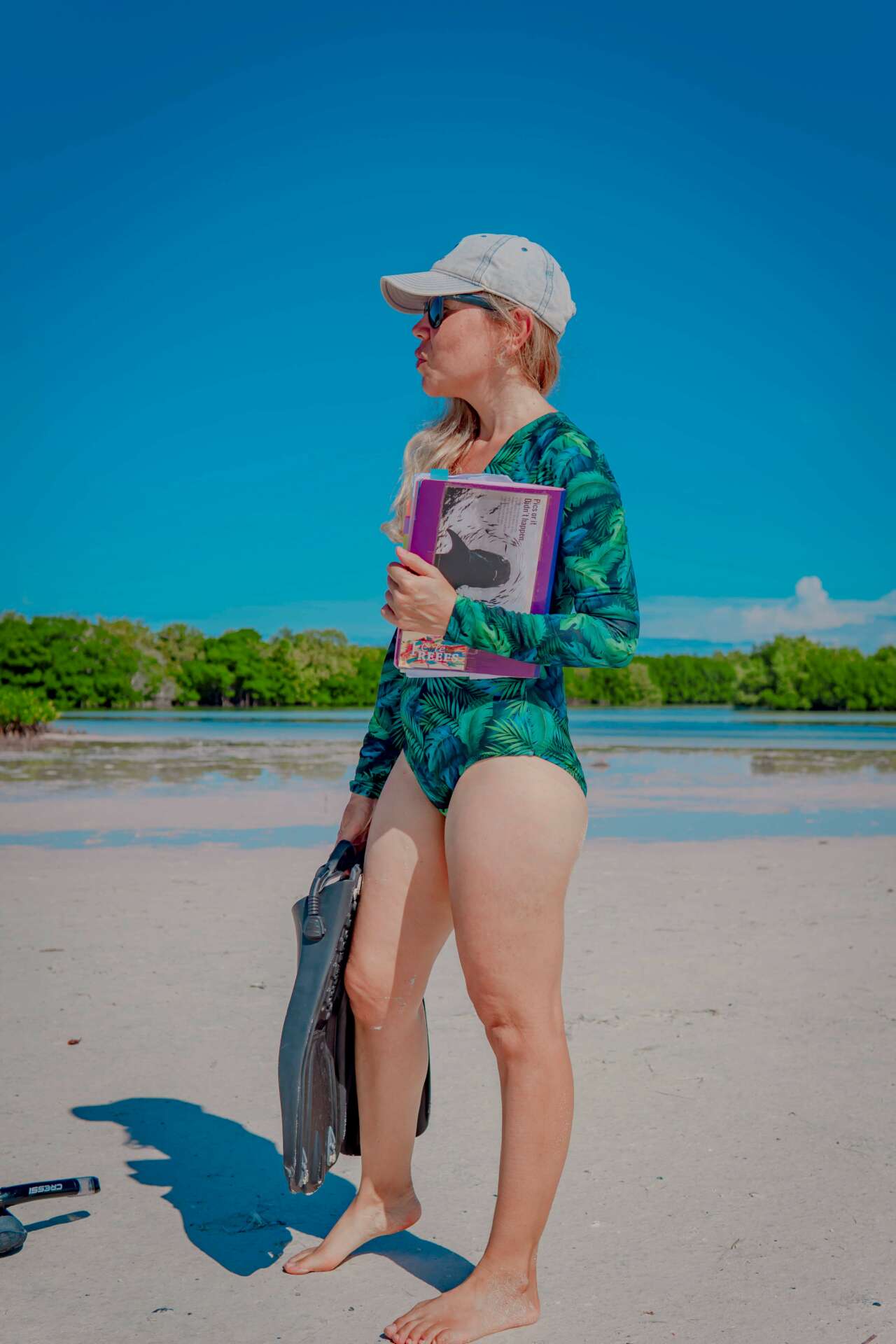
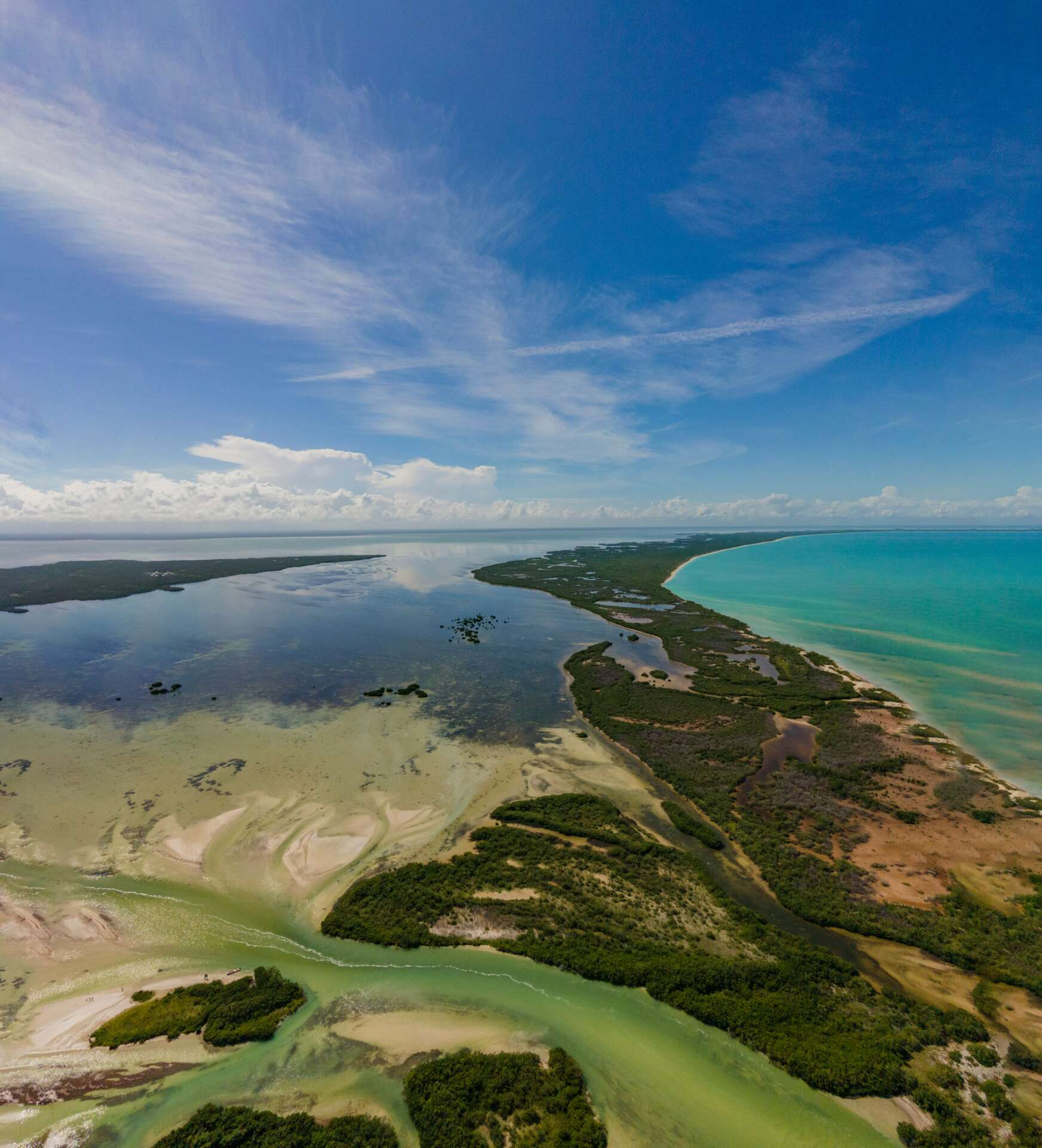
What’s a lesson you had to unlearn and what’s the backstory?
In my professional journey, a significant lesson I had to unlearn revolved around societal norms dictating professional roles. Society often prescribes certain roles, and individuals tend to accept them unquestioningly, potentially limiting their true potential in life. Life is dynamic, marked by constant change, and as humans, we may feel the need to shift career paths at different points. Unfortunately, societal criticism and judgment often surround such career changes, contributing to many individuals in their mature years feeling unsatisfied about unfulfilled dreams.
The transformative impact of COVID-19 has been noteworthy, prompting people worldwide to reinvent their lives and pursue more personally connected professional paths. Drawing from my personal experience, I was initially molded in a structured scientific environment, firmly labeling myself as a dedicated scientist. If someone had told me five years ago that I would open and run a nonprofit, living on a Caribbean Island, I would have dismissed the idea entirely.
At that time, I believed I lacked strong social skills for networking outside the scientific community and couldn’t envision myself as a leader capable of guiding sizable groups. Moreover, I perceived my happiness as solely tied to a career in science, considering myself a complete nerd.
Life, however, took a 360-degree turn, especially during the upheavals caused by COVID-19. To continue my work as a marine biologist in a more independent capacity, I decided to establish my nonprofit. This decision led me to engage in diverse tasks beyond scientific pursuits, involving interaction with various people and assuming leadership roles. Surprisingly, this multifaceted experience brings me immense happiness and fulfillment.
This journey taught me that embracing openness and cultivating a sense of wonder and curiosity can unveil new life paths, transforming our existence into a more enriched and joyous one. It underscores the idea that individuals, when more receptive to change, can discover new opportunities and insights into themselves and their surroundings. I believe this mindset contributes to harmony and balance, crucial elements in a world striving for positive coexistence among human societies. In the face of global challenges, finding personal joy and stability becomes not only an individual pursuit but also a collective contribution to overcoming social and environmental obstacles on a global scale.
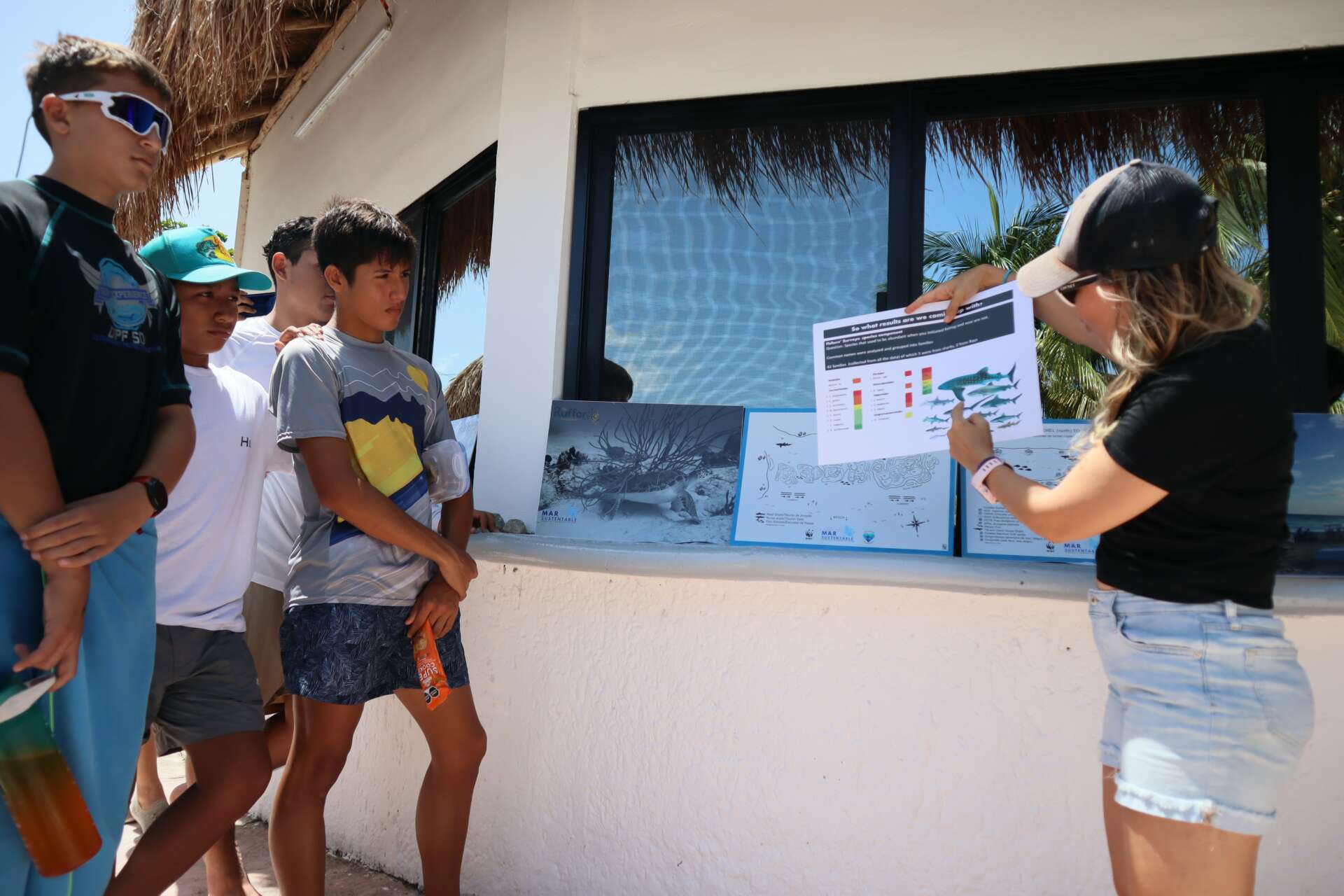
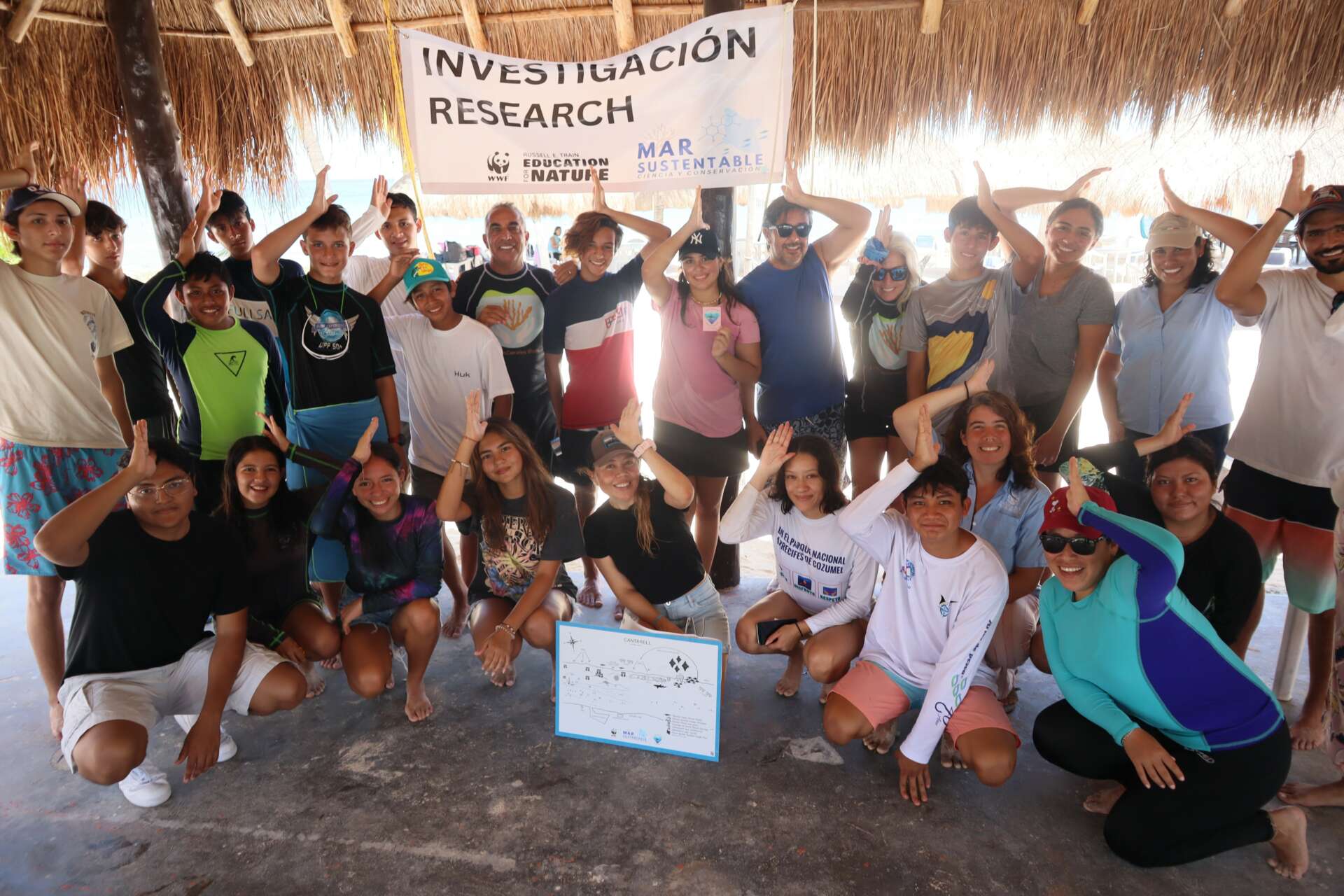
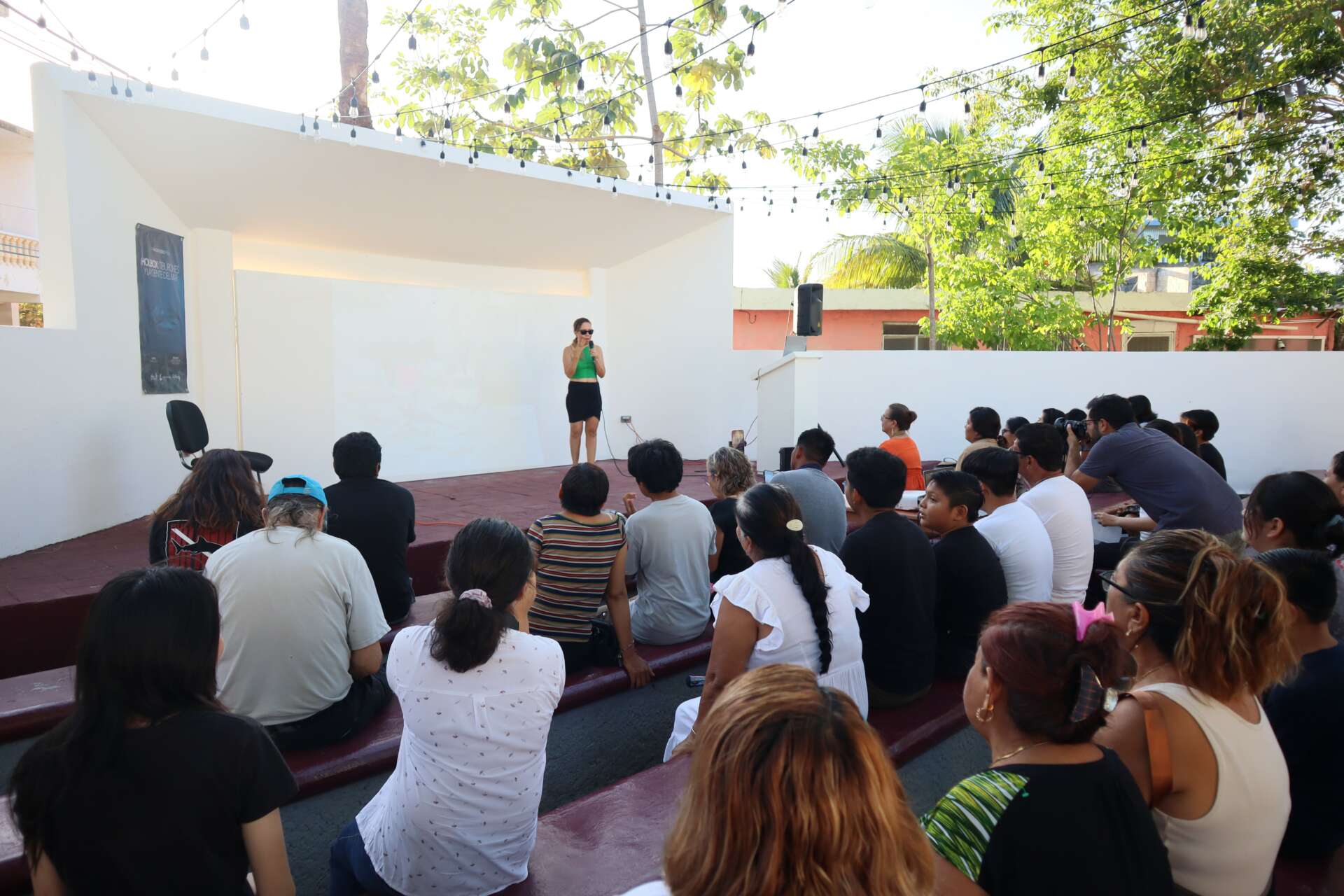
Contact Info:
- Website: https://www.marsustentable.org/
- Instagram: https://www.instagram.com/marsustentable1/?hl=en
- Facebook: https://www.facebook.com/marsustentable/
- Linkedin: https://mx.linkedin.com/in/nadia-t-rubio-cisneros-46600685
- Twitter: https://twitter.com/MarSustentable
- Youtube: https://www.youtube.com/channel/UCuhC095mcTjsjsbQ6vN1jVQ
- Other: https://www.tiktok.com/@marsustentable1
Image Credits
Mar Sustentable Ciencia y Conservación Félix Vázquez Pablo Sepúlveda


